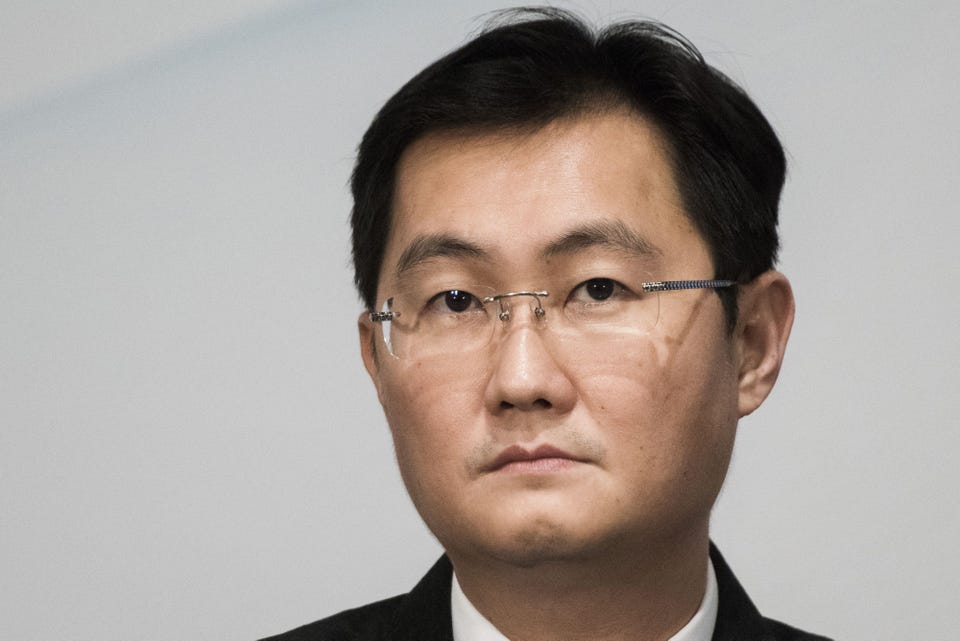Alibaba and Tencent, the twin pillars of China’s once-booming internet sector, have long had reputations for eye-popping growth figures and minting new billionaires—but no longer. The two companies are now struggling with the harsh reality that eking out any growth at all will be considered a bonus. Their drastically dimming prospects are reflected in Tencent’s latest financial results.
The gaming and social media giant, which for years touted double-digit revenue increases, was squeezed on almost all fronts during the quarter that ended in June. Its total revenues shrank by 3% to $20 billion from a year ago—the first such decline since 2014—while profit attributable to shareholders missed expectations and plunged by almost two-thirds to $2. 8 billion.
Tencent blamed the alarming decline on factors including weaker spending by users and less corporate demand for its ad offerings. The company joins e-commerce giant Alibaba—which reported relatively flat revenue growth just two weeks ago—in suffering from the wider slowdown in China’s economy. Analysts say a return to the heydays of strong growth has become exceedingly hard, and investors now view the firms as value stocks, assigning the behemoths pricing ratios akin to that of state-owned enterprises such as the Hong Kong-listed China Mobile.
“Honestly, they won’t go back to their previous high double-digit growth, that is all over,” says Dickie Wong, executive director of Hong Kong-based Kingston Securities. “Investors wouldn’t be willing to give the same price-to-earnings multiples they previously gave to Alibaba and Tencent. ” This means that Tencent now trades at a P/E ratio of 14.
57, and Alibaba at 13. 55. The multiples represent a huge discount from when they previously traded at between 30 and 40 times earnings.
By comparison, China Mobile and China Telecom both have P/E ratios of around eight times earnings. Both companies, in the meantime, have also had to trim workforce as China’s economic recovery has lost further steam —causing consumers to pull back spending on everything from games to clothing. Their billionaire founders, Alibaba’s Jack Ma and Tencent’s Pony Ma , have both seen their respective fortunes plunge by almost 50% from 2021 levels, as the companies’ shares have continued to go on a downward spiral.
To arrest the decline, Tencent has said it would release more ads into the company’s short-video feeds, as it tries to compete for a bigger slice of brands’ increasingly tight budgets. Alibaba, for its part, is expanding overseas on multiple fronts to bolster its topline. The company is partnering with Perennial Holdings to build the tallest skyscraper in Singapore, and its Southeast Asia arm Lazada saw total orders growing 10% year-over-year during the second quarter.
But these initiatives are unlikely to become major revenue drivers anytime soon. “There might be slight recovery in the third quarter,” says Shawn Yang, a Shenzhen-based managing director at research firm Blue Lotus Capital Advisors. “But going forward, even a 10-15% yearly revenue growth rate would be very, very good for the two companies.
” Regulatory obstacles still have yet to be resolved. Tencent hasn’t been able to secure licenses to charge users for new games, meaning it has to rely on year-old titles such as Honour of Kings and League of Legends for revenue streams. “We still strongly believe that the regulatory probe on China’s tech sector is far from over and Tencent being excluded from new game approvals is a sign that the regulatory probe on dominant players such as Tencent is not going to end anytime soon,” writes LightStream Research analyst Shifara Samsudeen, who publishes via research platform Smartkarma.
What’s more, the country’s internet giants could still be under pressure to break up their vast holdings, as regulators wish to keep reducing their market influence. The Wall Street Journal reported in July that billionaire Jack Ma plans to relinquish control of Ant Group, as the fintech giant seeks to move away from Alibaba and works to revive its public listing. Tencent, which handed out last December $16 billion of e-commerce platform JD.
com’s stock as special dividends, is reported by Reuters to be considering a $24 billion sale of its stake in food-delivery giant Meituan. In a Wednesday analysts’ call, the company’s billionaire President Martin Lau said the report “wasn’t accurate,” but he also said the company is thinking about how to increase returns to shareholders, who have welcomed previous share distributions. “I personally expect that deal to occur,” says Brock Silvers, chief investment officer at Hong Kong-based Kaiyuan Capital.
“Regulators also seem to be mandating a stricter strategic focus, and tech giants are responding by divesting non-core assets and restricting non-core investments. ”.
From: forbes
URL: https://www.forbes.com/sites/ywang/2022/08/18/chinas-internet-giants-face-new-era-of-tough-oversight-and-low-growth/



